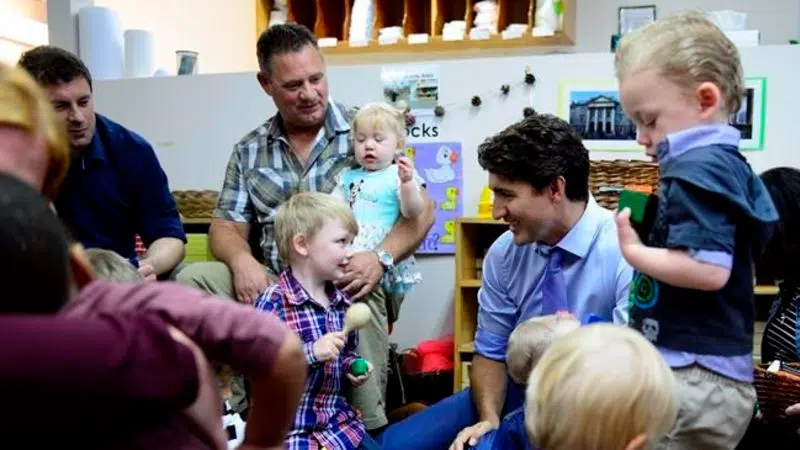
Tax credits or cash? Parties spar over what is best for parental benefits
OTTAWA — Is it better to be paid in credit or with cash?
That’s a question Liberals and Conservatives tusseled over Tuesday in the ongoing federal election competition for the votes of middle-class families.
The Liberals promised an expansion to existing child and parent benefit programs, including a pledge to make maternity and parental benefits tax-free, effectively one-upping their Conservative rivals who’d made a similar pitch last week.
For the Liberals, the promise came in the form of a commitment to removing the taxes from the benefits.
